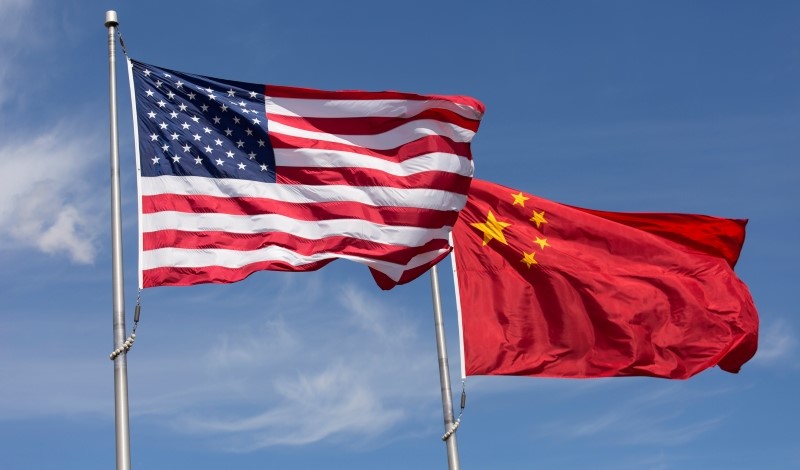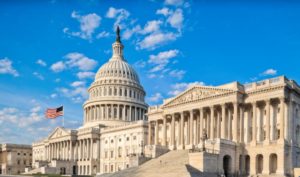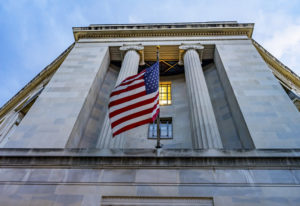
Scholars predict that expanding security review procedures could affect how American companies do business.
When talking about the popular LGBTQ dating app Grindr, its implications for national security are probably not the first thing that comes to mind.
In 2019, however, the Committee on Foreign Investments in the United States (CFIUS) intervened against the app’s acquisition by Chinese investors on national security grounds, forcing its new owners to resell it. This blocked transaction is a good example of how the boundaries of what constitutes a potential threat to national security are evolving. The result is more robust screening procedures for cross-border transactions.
In a recent article, Kristen Eichensehr and Cathy Hwang of the University of Virginia School of Law explain how, in a time in which governments increasingly use economic tools to achieve their strategic goals, such national security reviews are expanding. Furthermore, they identify practical implications of what they call a new “national security creep.”
National security reviews for cross-border corporate transactions are not a novelty in the United States. Rather, CFIUS has been screening foreign investments in U.S. companies since 1975. The committee’s review can, as a last resort, result in the voiding of the transaction. The Secretary of the Treasury heads the interagency committee whose members include, among others, representatives from the U.S. Departments of Justice, Homeland Security, and Defense.
Eichensehr and Hwang explain that one of the most remarkable traits of the national security review procedure is that procedural details and its review criteria are mostly unknown. Congress has listed factors to consider for CFIUS when evaluating the national security risks, such as the potential creation of cybersecurity vulnerabilities. These criteria are, however, very broad and non-exhaustive.
According to Eichensehr and Hwang, this opaque nature of the review process makes it hard for transactional parties to minimize the risk of an intervention by CFIUS. Because of this black box status for investors and its potential to blow up deals, JPMorgan Chase’s co-head of mergers and acquisition team once dubbed the review process the “ultimate regulatory bazooka.”
In the past, CFIUS has limited its review to a few handful of deals that were clearly related to U.S. national security interests. In recent years, this understanding has changed drastically. Now CFIUS’s jurisdiction also covers, for instance, foreign investments in real estate near sites of national security concern and transactions by businesses that control or produce critical technologies, such as artificial intelligence.
As the scope of CFIUS’s review has expanded, it now reviews hundreds of transactions, blocking or even unwinding several deals each year.
As Eichensehr and Hwang point out, the United States’ general strategy to strengthen its economic security does not stop with expanding its own control regime for foreign investments in the U.S. market. Rather, recent administrations have encouraged U.S. allies to beef up their own review processes for these inbound investments. As a result, important global actors such as many of the European Union’s member states have introduced new or expanded review processes.
In addition, the U.S. government is considering implementing some restrictions on outbound investments by U.S. investors in foreign countries due to national security concerns. As a first step, the Trump Administration prohibited U.S. persons from investing in companies linked to China’s military—a measure upheld and expanded by President Joseph R. Biden.
Eichensehr and Hwang explain that Congress has considered even broader limitations. But various proposals to establish a new interagency committee to screen outbound investments did not make it into 2022’s CHIPS and Science Act. Still, Eichensehr and Hwang argue, these recent attempts at new legislation show that there is momentum to establish a CFIUS-like outbound investment control mechanism in the future.
According to Eichensehr and Hwang, the trend to merge economic and national security could have three significant practical effects.
First, Eichensehr and Hwang contend that the international expansion of investment screening procedures for inbound investments could impact American investments abroad. In particular, Eichensehr and Hwang argue that—as many Western national security review procedures are affecting Chinese investments—blowback could come from China. Chinese leadership could retaliate by restricting foreign investment itself and pressuring associated countries to do the same.
Eichensehr and Hwang explain that the United States’ outreach to its allies to establish additional national review procedures could backfire for American investments. The relationships between the United States and its allies have already been strained in the past—for instance due to espionage allegations—and therefore it is possible that under similar circumstances perceived security threats from the U.S. government may extend to private companies.
Second, Eichensehr and Hwang contend that increased regulatory scrutiny could impact the information available for Americans to make informed investment decisions. Under the current regulatory framework, publicly traded companies must disclose when they enter into material agreements such as mergers and acquisitions. The national security creep, however, could lead them to try to mitigate the risk of the unpredictable screening scrutiny by limiting the provided information to a minimum.
Third, the national security creep could reduce transaction volumes. Although there is no empirical research available yet to support this claim, Eichensehr and Hwang argue that it seems likely that the new investment restrictions will drive up regulatory costs and therefore potentially chill transactions.
Eichensehr and Hwang conclude by expressing hope for greater awareness of this previously little-noticed area of the law and how it affects business.
In addition, they call on regulators to be as transparent about the security screenings as possible to allow a more nuanced analysis of the measures’ effectiveness and appropriateness. Furthermore, this increased transparency could demystify the review procedure for potential deal parties, allowing them to take national security concerns better into account.
At a time when the U.S. government increasingly worries about China’s expanding influence, it remains to be seen whether the call for more transparency about the national security creep will be answered. If it is, perhaps greater transparency might reduce at least somewhat the impact of the government’s “regulatory bazooka.”



